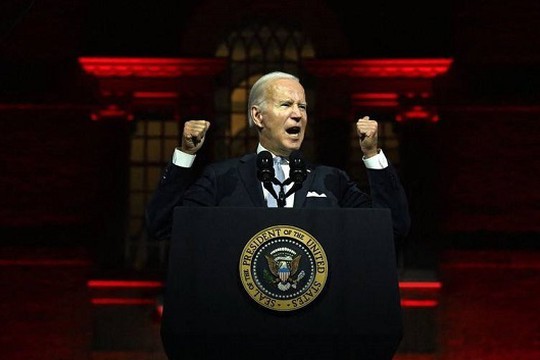There are cracks in the Western alliance. Some of us are unhappy about America donating cluster bombs; Germany is reluctant to see Ukraine join NATO. Such rifts underscore the long-term problem of a divided Europe relying on Washington for support that is dangerously contingent upon American politics, writes London “The Telegraph”.
Perhaps because of his age, Biden is the archetypal post-war president. He entered Congress in 1973 opposed to the Vietnam War; since then he has yo-yoed from dove to hawk and back. He opposed Bush Sr’s Gulf War yet endorsed Bush Jr’s great adventure in Iraq, claiming credit for drafting parts of the Patriot Act. Just as the American public turned sour on intervention post-Vietnam, Biden rediscovered his realism after Iraq – privately cautioned against the Libya bombing, even the raid on Osama bin Laden in Pakistan. After the election in 2020, he withdrew from Afghanistan.
Biden won office because he actually has a pretty good grasp of what the American people will tolerate, and the bellwether president has intuited that voters still wish to run the world – but from a safe distance.
According to one poll, a third of Americans think the war is already too expensive. Some Republicans complain that Biden is fighting the wrong enemy, that the US is depleting expensive weapons stocks at the moment when China is on the rise. They have a point. Last year, the administration said use of cluster-bombs could be a war crime; Biden has decided now to gift some of those vile weapons to Zelensky because not only is Ukraine running low on regular ammunition, so is the US.
Biden, though his instincts are populist, is currently very unpopular – and will face Ron DeSantis or Donald Trump in next year’s election, both of whom are war-sceptics. Trump has pledged to end it within 24 hours, raising the question of what Europe will do if Washington’s support for Ukraine dries up because the GOP wins or the Democrats lose their nerve.
Defence spending in central and west European states has increased: it has jumped 30 per cent on a decade ago and is now higher than the last year of the Cold War. The EU has sent arms and the Continent is committed to energy security. Ukraine has changed our corner of the planet radically and quickly. Yet Germany did itself reputational damage by dragging its feet over supplying tanks and France looks foolish for pursuing a diplomatic solution long after it was credible. Moral weight has shifted eastwards, where countries, such as summit host Lithuania, are far more likely to hit their Nato target of spending 2 per cent of GDP on defence.
In short, the Continent is not unified or spending enough to imagine it could contain Russia alone – and it would be alone because the developing world is neutral (at best).
One interpretation of the conflict is that it isn’t the return of power-bloc competition – as in the Cold War – but a rogue nation-state testing if it can act independently and in defiance of the US. Such independence of action is precisely what Europe does not have because we lack the arms and, for all the EU’s pretence to sovereignty, do not think and act like a coherent civilisation. When the emperor of the new Rome comes visiting, we’d better play nice: we rely upon America for our protection, arguably for our very survival.
Weakening Europe, which dominated world affairs for almost 500 years, is now slipping into the position of a powerless peninsula of Eurasia. “Sic transit Gloria Mundi”...
read more in our Telegram-channel https://t.me/The_International_Affairs

 11:33 13.07.2023 •
11:33 13.07.2023 •























